Learning Journey: From Guidance to Autonomy
Education is not a singular, unchanging path but a sequence of diverse and evolving landscapes. Greek mythology provides a compelling framework for understanding how scope, guidance, uncertainty, and responsibility shift across various stages of learning, from structured early education to self-directed lifelong development. By aligning five iconic myths with distinct educational phases, this exploration elucidates the dynamic interplay between independence and support, offering valuable perspectives on integrating human mentorship with emerging technological tools.
High School: Chiron’s Mentorship
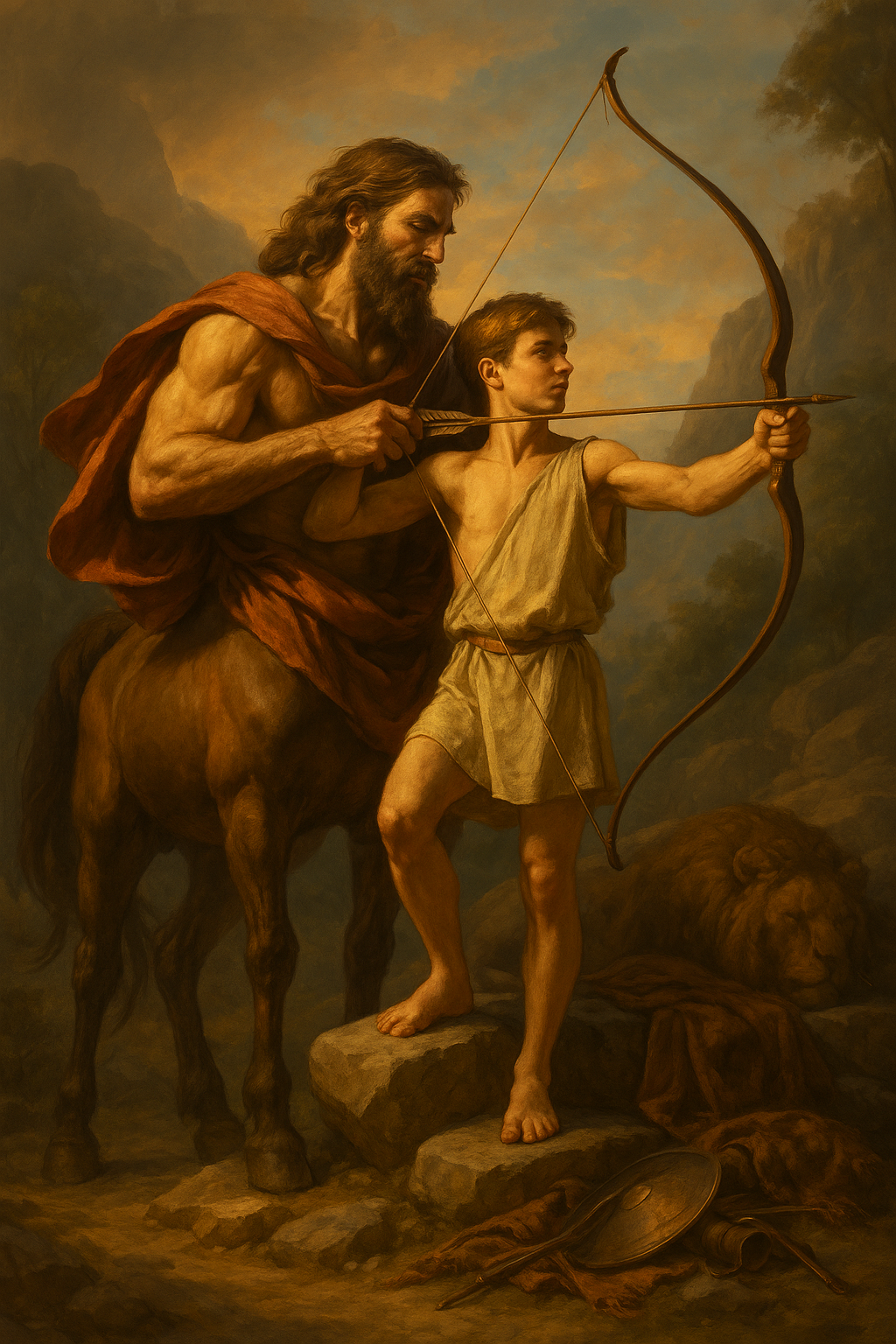
In the foundational stage of high school, learners operate within a carefully delineated domain, governed by explicit rules, consistent feedback, and opportunities for low-stakes practice. Educators assume a central role, prescribing the curriculum, providing examples, and correcting missteps with precision. This phase parallels the education of Achilles under the centaur Chiron, whose mentorship instilled physical prowess and moral clarity. Just as Chiron equipped Achilles with the skills and principles necessary for his future trials, high school lays the groundwork for intellectual and ethical development through structured guidance.
Bachelor’s Degree: Flight of Icarus
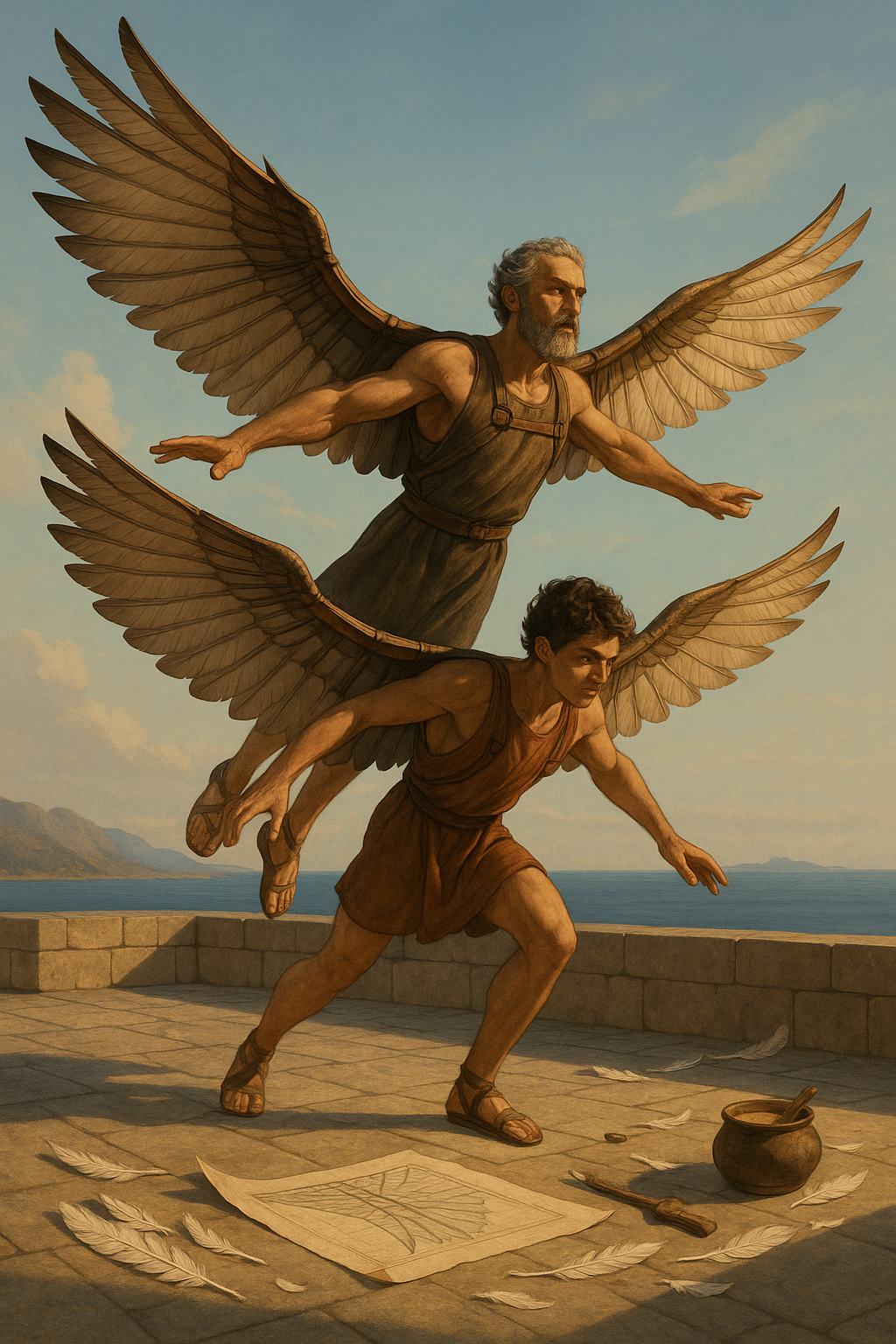
The transition to a bachelor’s degree broadens the educational horizon. Instructors furnish students with tools, establish boundaries, and grant a measure of autonomy within defined limits. Success requires students to internalize guidance while applying it independently, a balance reminiscent of Icarus’ flight alongside his father, Daedalus. Daedalus provided the wings and counsel—neither flying too high nor too low—yet Icarus bore the responsibility of adhering to this advice. Deviating from this path risks delays or unproductive detours, underscoring that undergraduate education is a phase of supported exploration where freedom must be tempered by discipline.
Master’s Degree: Theseus in the Labyrinth
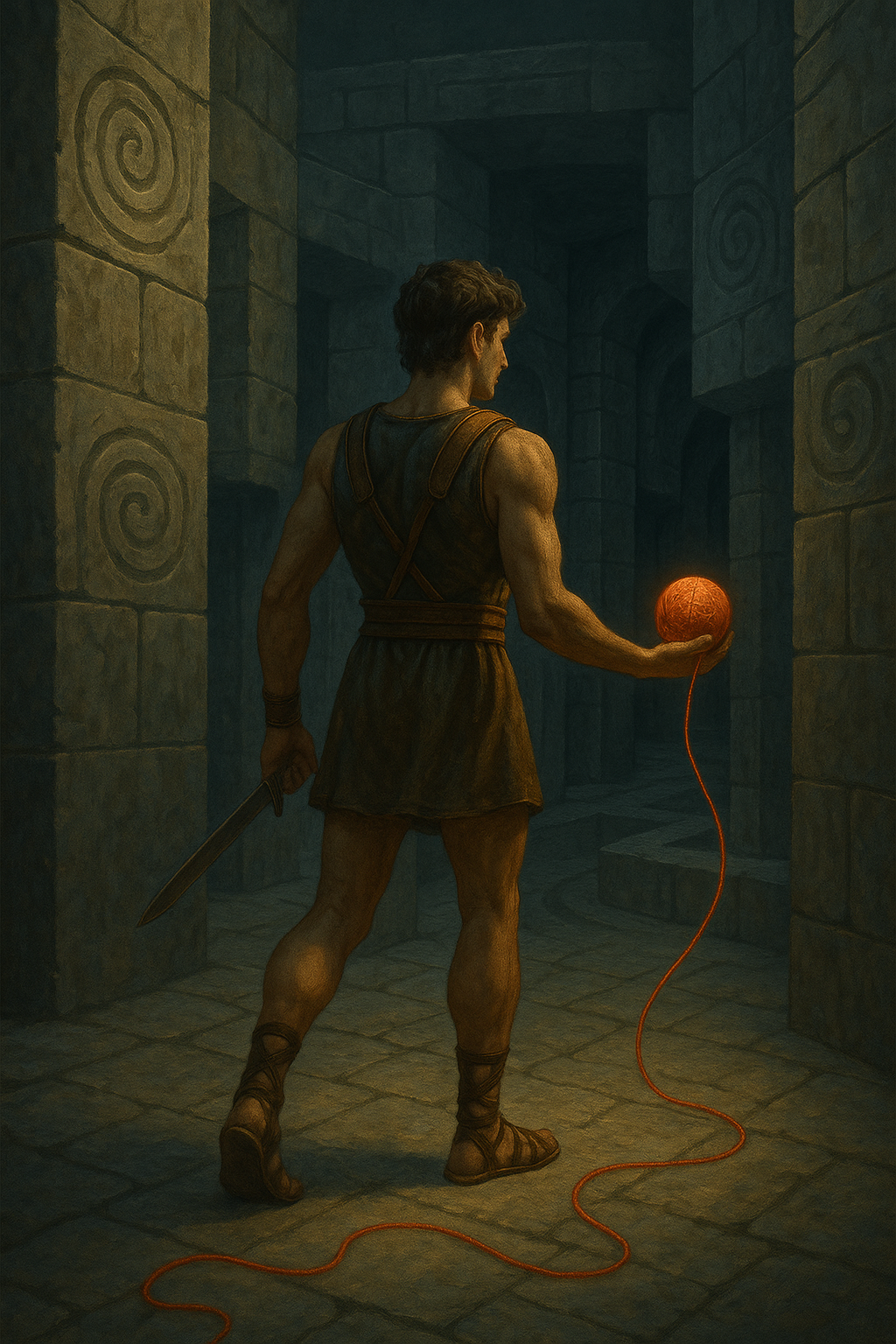
The pursuit of a master’s degree introduces a more intricate challenge, akin to Theseus navigating the labyrinth. The boundaries of this academic endeavor are delineated by prior scholarship, forming a complex yet navigable structure. Supervisors offer a vital lifeline—comparable to Ariadne’s thread—ensuring that students avoid complete disorientation. Nevertheless, the choices at each juncture rest with the learner, whose ability to chart the course and document the journey reflects mastery. This stage bridges guided learning and independent inquiry, cultivating both resilience and analytical precision.
PhD: Heracles and the Hydra
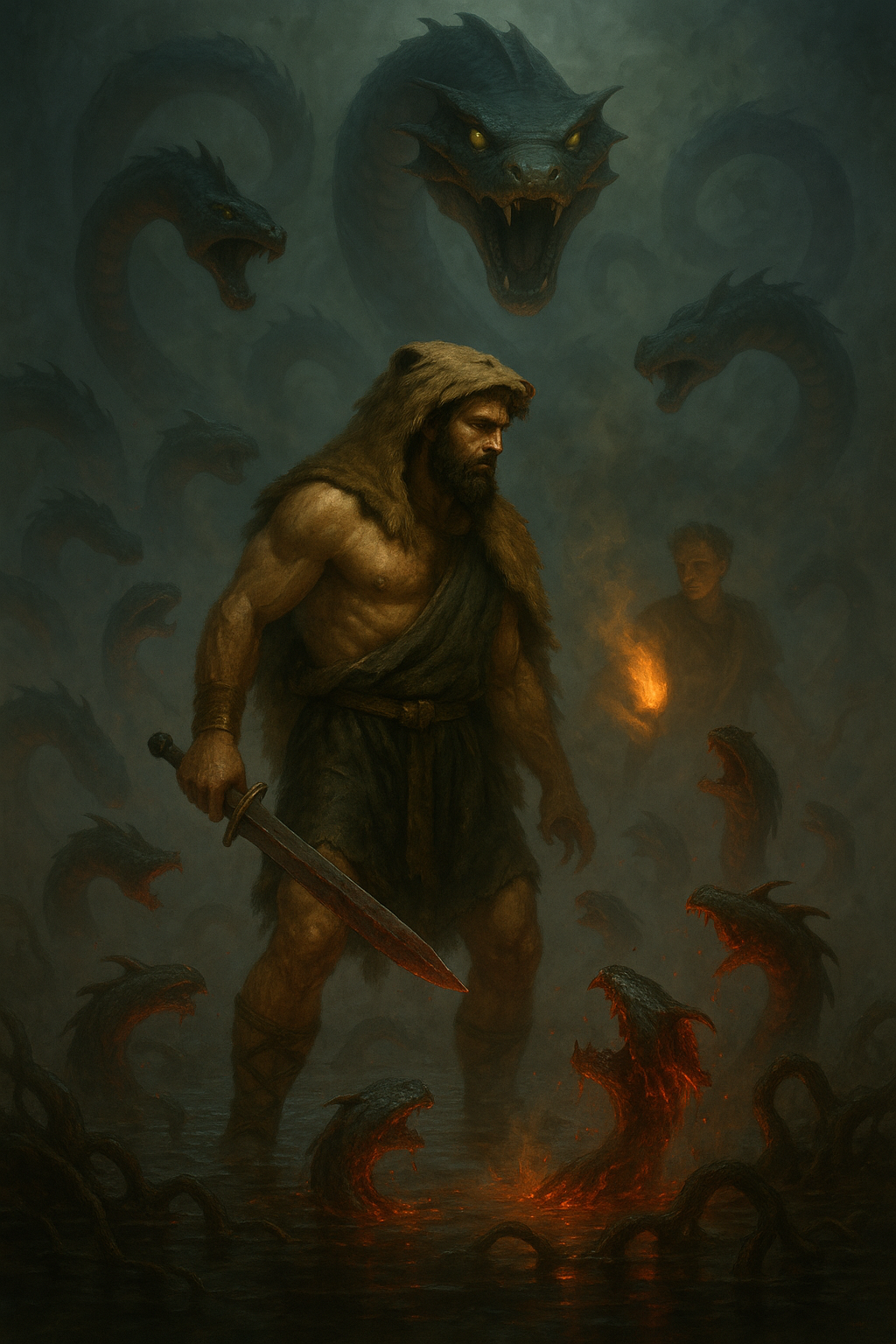
The doctoral phase represents a formidable undertaking, where each resolved challenge unveils new layers of complexity, much like Heracles confronting the Hydra. In this myth, Heracles’ cousin, Iolaus, played a pivotal role by cauterizing the Hydra’s severed necks to prevent regeneration, offering critical yet limited assistance. Similarly, PhD advisors provide precise, occasional support, stepping in at key moments to offer guidance or resources. However, the primary responsibility remains with the candidate, who must articulate their needs clearly and adapt strategies to overcome an ever-evolving array of obstacles. This phase epitomizes the shift toward near-complete autonomy, with external aid serving as a complement to the researcher’s own ingenuity.
Work Life: Sisyphus and Self-Chosen Purpose
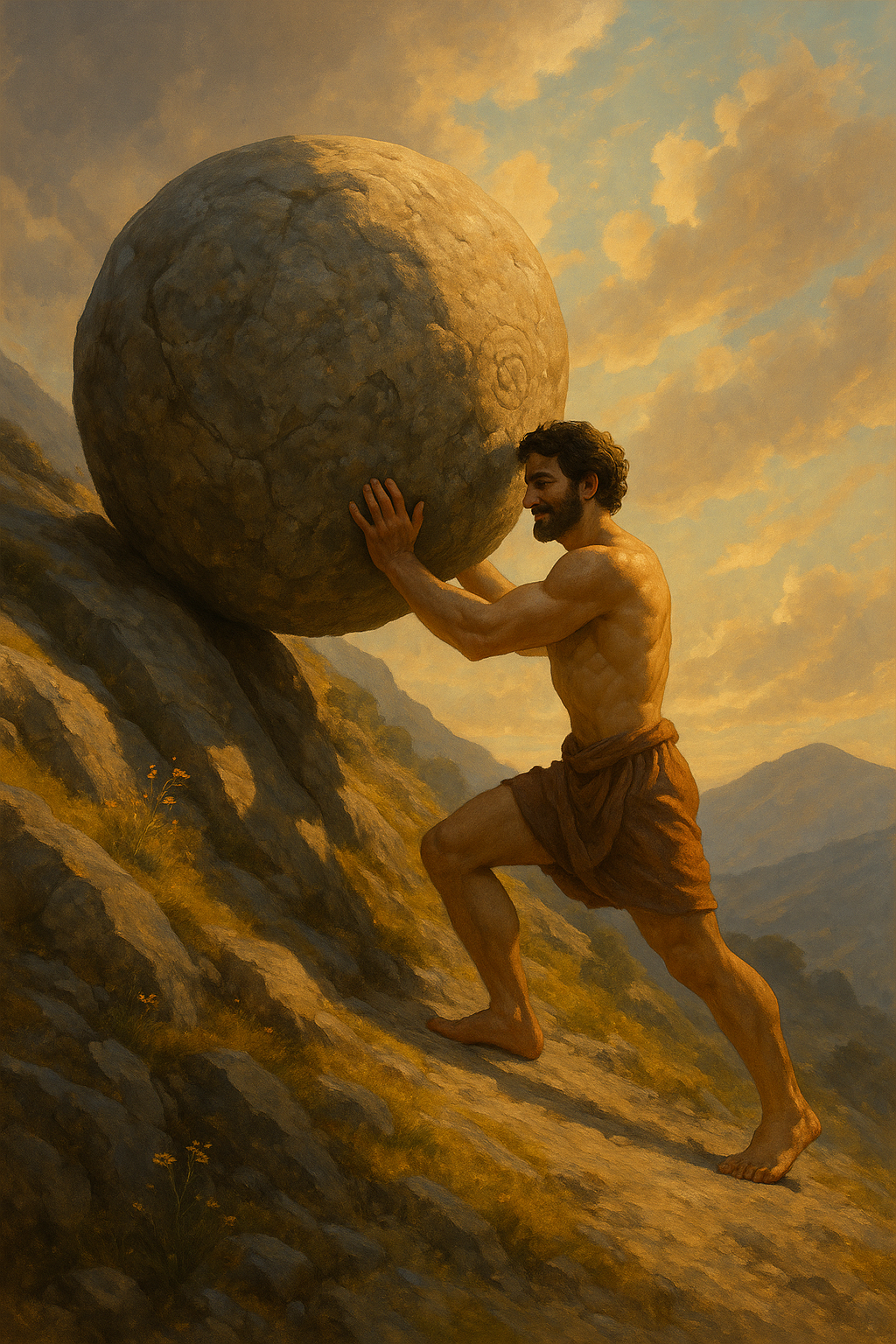
Beyond formal education, the terrain of learning becomes boundless, requiring individuals to define their own objectives and sources of meaning. This stage evokes the image of Sisyphus, condemned to an eternal task yet imbued with potential for fulfillment. Albert Camus, in his essay “The Myth of Sisyphus,” asserts,
“The struggle itself toward the heights is enough to fill a man’s heart. One must imagine Sisyphus happy.”
This perspective illuminates lifelong learning: the absence of imposed structure demands that individuals select their challenges and derive satisfaction from the act of striving, regardless of finality. Purpose becomes a personal construct, forged through persistence and reflection.
The Role of AI: Augmenting, Not Replacing
As learners traverse these stages, artificial intelligence emerges as a powerful tool, capable of addressing discrete problems with unmatched efficiency. Yet its integration requires caution. Educators must evolve into curators of knowledge, guiding focus and fostering discernment. Human interaction remains indispensable for developing interpersonal skills—empathy, negotiation, and resilience—which AI cannot replicate. Over-reliance on technology risks eroding the intuitive and collaborative capacities honed through traditional learning environments, highlighting the enduring value of communal education as a foundation for leveraging AI effectively.
Hence, if you are wondering whether you should go to campus, consider the multifaceted benefits it offers. Engaging with peers and mentors in person can enrich your learning experience, providing opportunities for collaboration, networking, and personal growth that are difficult to replicate online.
Conclusion
For those questioning the relevance of structured education in a technologically advanced era, the journeys of Greek heroes offer a timeless reminder: even the mightiest figures relied on mentors, companions, and were nourished by technological aids and communities. While artificial intelligence can amplify our efforts, it cannot define our aspirations or share in our achievements. True autonomy in learning emerges most robustly from a bedrock of collective support, underscoring the wisdom of engaging in formal education before embarking on a lifelong journey enriched by technological aids.